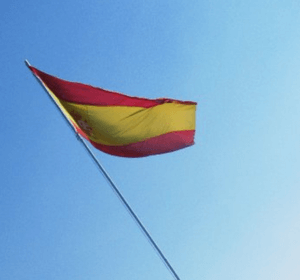9 Things we Should Consider in Moving
According to the National Statistics Institute of Spain, the expat community is currently made up of over 4,426,000 foreign residents out of the total population of more than 46,423,000. As Spain slowly emerges from the economic crisis, this expat population is increasing with more and more foreign residents moving specifically to the 2 largest cities, Madrid and Barcelona.
Madrid itself is a haven for the expat community because it’s where the jobs are. However, before taking the plunge, there are certain things to consider:
- Know the Cost of Living: In Madrid, per person and including all costs of living (rent, bills, food and extra expenses), you can expect from between 800 – 1000 € for the bare necessities in Madrid’s city center for a student life to over 4000 € for a luxury lifestyle. Compare your monthly budget to these estimations, and visualize right now the lifestyle you can afford. Also we recommend using www.expatistan.com to compare the cost of living levels of your current city to that of Madrid. For more information visit: https://moving2madrid.com/cost-of-living/.
- Be Aware of the Conditions for Renting Apartments: Renting an apartment in Madrid is different. Everything is negotiable or nearly, depending on the market. In a rental, all the conditions depend on the agreement you reach with the landlord. When you negotiate these conditions, it is essential you have in mind the standard rental laws (La Ley de Arrendamientos Urbanos). For a complete list of deposit costs, rental period terms and conditions go to: https://moving2madrid.com/security-deposit-conditions-rent/
- Be aware of the conditions of Purchasing Property: Do your research. Buying property in Spain is not like buying in your home country. Know what the mortgage rates are for Expats, what you will have to pay in taxes and fees, what the legal limits are, and what the buying process is like. Do your due diligence of legal, architectural and financial checks. Also, always ask for the help of a professional. For more information on buying property in Spain visit: https://moving2madrid.com/process-buy-apartment/.
- Learn at least basic Spanish: When in our own countries, it is easy to take communication for granted. Be prepared by knowing basic greetings, and standard phrases (where is.., how much is…, please, thank you, etc). Sure, in Puerta del Sol you will be able to navigate your way in English because it is a tourist location. However, it isn’t until you are living in a less central neighborhood that you will be pulling your hair out at the local grocery store because you don’t know the word for lettuce and you can’t look it up because you don’t have your internet on your smartphone yet. Do take advantage of the opportunity to speak a foreign language and push yourself. Write down new words you learn and practice using them over and over again. Take it one step at a time and be patient even when the locals do not show you the same courtesy. Remember these are learning experiences that will be foundations on your journey to being a true expat.
- Know the time schedule: The Spanish time schedule is different than that of the USA and most European countries. Most businesses are open at 10 am and close at 9pm, but also close from 2pm – 5pm for the siesta. Weekends vary. Shops are opened on Saturdays, but many services are closed. For example, as home hunters we get requests to see apartments on the weekend. However, in Madrid we find that most agents are not reachable on the weekend so it is difficult to optimize apartment options on a Saturday or Sunday. As for mealtimes, Breakfast is usually between 730-930, Midmorning Snack 11am, Lunch from 2-4, Afternoon Snack between 530 and 6pm, and Dinner from 9-11. If you are going out for dinner, most establishments will not seat you before 830pm unless you are in tourist areas.
- Have an Idea of What Neighborhoods Match Your Lifestyle: Before arriving, know the different neighborhoods or barrios. Important things to consider, altogether, are location in relationship to your daily commute, cost, lifestyle, and schedule. When I first moved to Madrid, I moved to the area near Plaza de Toros because it was located on my metro commute. I realized quickly that the local community was not really in my age group and that most local establishments closed way too early for my lifestyle and schedule. Do not just choose anything. This is your new home, make sure it’s the right place for you. For information on Madrid’s best neighborhoods go to: https://moving2madrid.com/best-neighborhoods/
- Get a bank account: You need a Spanish bank account to pay your bills. There is no other way around this. All service providers require one. If possible sign up for a bank account before you arrive so that it is ready to transfer funds from your current bank. This will make all your move in processes quicker (signing up for services, rental deposits, etc). Do research on which banks operate in Spain, who have personalized representatives that speak English, and where the international transfer costs are the lowest. For our opinion of the best bank account for expats, visit: https://moving2madrid.com/best-bank-current-account/
- Look for the Best Phone Plans: Be ready to sign up for an affordable phone plan that matches your budget. Whether it is a pay as you go plan or an 18 month contract, do your research and sign up before you arrive (with your new bank account). For information on our the best phone plans visit: https://moving2madrid.com/best-mobile-phone-deals/
- Prepare for the Red Tape: When you arrive in Madrid, you will need to go through processes of getting or registering for basic administrative essentials like your NIE (Tax Number), social security number, medical card, padron. Obviously some of these things you cannot do until you arrive, but have an idea of what to expect so that you can get this done as quickly as possible when you arrive and start enjoying your new home. For more information on Red Tape Requirements, go to: https://moving2madrid.com/5-red-tape-tasks-for-when-you-move-to-madrid/
Moving to Madrid can be an exciting yet daunting transition. Your new life awaits! But, for those of us who have been through this, we know all too well that the hardest part of the journey is the preparation before. That said, it is important to do your research before you relocate, so that your transition a La vida Madrileña goes much smoother. Good Luck.
Your free property consultation is just one click away at: https://calendly.com/brian_mosbeux/consultation
Posted on 29 February, 2016 by Pierre-Alban Waters in Rent - How to rent - Buy, New? Start Here







Leave a Reply